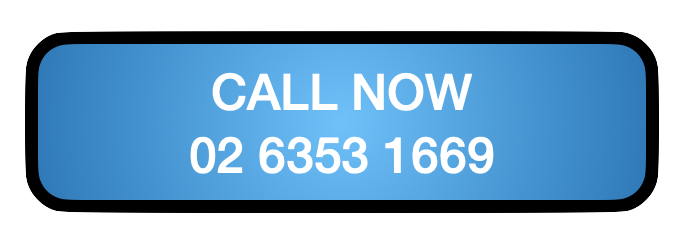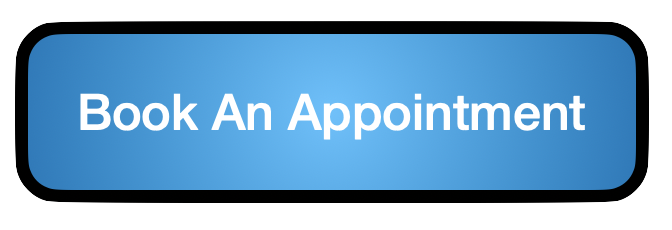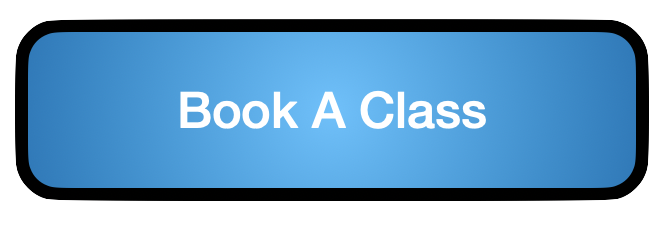I see it all the time when I talk to business owners, and I ask about their businesses. They hand me their card, and instantly my perception of their business is shattered because they think a Facebook Page is their business website. While I am sure they are good at what they do, I find it really hard to listen to their complaints about the lack of business. This blog post will explain why only using social media is a bad idea. I will also cover why every business should have a blog.

Facebook Page: Why It Works and Why It Is Holding You Back
Before we start, there is a good reason to have a Facebook page. It is a great marketing tool that is easy to use. So I’m not saying you should stop using Facebook to market your business. It’s a TOOL… not your website. I’m saying that you are doing yourself a disservice by only using Facebook, and it will come back to bite you later.
Wait for it… Wait for it… the reason why a blog is more important than a Facebook page is HUGE!
How It Works
Reach a Wider Audience:
By creating a Facebook page, small businesses can tap into a vast audience of potential customers. Facebook’s user base spans various demographics, providing an opportunity to engage with diverse groups of people who may be interested in the products or services offered. Through targeted advertising and content promotion, businesses can amplify their reach and increase brand visibility to attract new customers.
Establish Credibility and Trust:
Having a presence on Facebook lends credibility and authenticity to a small business. Customers today often research businesses online before making a purchase decision. A well-maintained Facebook page with informative content, positive reviews, and active engagement signals that the business is reputable and trustworthy. It allows potential customers to learn about the company, its offerings, and the experiences of past clients, fostering a sense of trust and encouraging them to choose your business over competitors.
Engage with Customers:
Facebook provides an ideal platform for small businesses to engage directly with their customers. Through comments, likes, and shares, businesses can have real-time conversations with their audience, answering inquiries, addressing concerns, and demonstrating excellent customer service. Engaging with customers fosters a sense of community, loyalty, and brand advocacy, as satisfied customers often recommend businesses to their friends and family.
Showcase Products and Services:
A Facebook page serves as a virtual storefront, allowing small businesses to showcase their products or services in an engaging manner. Through high-quality visuals, videos, and descriptions, businesses can highlight their unique offerings, features, and benefits. Facebook’s marketplace feature also provides an additional avenue to list and sell products directly, expanding the business’s reach and potential customer base.
Cost-Effective Marketing:
Facebook offers small businesses an affordable and highly targeted advertising platform. With the ability to set budgets, narrow down target audiences based on demographics, interests, and behaviours, and track the performance of campaigns, businesses can reach their desired audience while maximizing their return on investment. Compared to traditional advertising channels, Facebook ads provide a cost-effective way to generate leads, drive website traffic, and increase sales.
Why Only Having a Facebook Page Does Not Work
We are almost at the part where I start talking about Blogging… You will never own your Facebook Page… Zuckerberg does!
A blog on your own website provides complete control and ownership over your content. Unlike a Facebook page, where the platform governs the rules and algorithms, having a blog allows you to customize the design, layout, and functionality according to your branding and preferences. Additionally, you have full ownership of your content, ensuring it remains accessible and searchable even if Facebook’s policies or algorithms change.
Remember when the Australian government and Facebook had a small dispute about content that could be shared? Do you know who suffered during this time? The small business owners because we were not allowed to share our own content. While that did hurt anyone with a Facebook page, my blog was still working.
When you hear people complain about censorship on Facebook, it is not just about nudes and political speech. Facebook can decide at any moment that it does not like your nation, or your business model or have its AI decide you are violating some rule because your business name or a term you use in your business in another language is a bad word. While this is very unlikely, if it does happen, there is nothing you can do about it.
Remember, you do not own your Facebook page, Mark Zuckerberg is allowing you to borrow the page. You have no legal rights, no means of control, and no means of making changes to any of his policies.
What happens if your Facebook page gets hacked… Who do you call?
I deal with this all the time when clients call because their Facebook page was “Hacked” (mostly due to a bad password they used for everything or a phishing scam… but that is a whole different topic).
Did you know that Facebook does not have any number to call to prove you own a Facebook page? (Like I mentioned above, you do not own it) All there is a form to fill out and hope that the person on the other end will understand what is going on enough to grant you access to your page again.
Facebook is only moderately motivated to get your page back. While I am sure they do care about protecting your page in the first place, they are flooded with requests to recover pages. If they cannot recover your page, oh well, you have to build another one and may spend more money rebuilding your audience.
If you have a blog, it is just a call to your provider, and they will help. While that is not a fun phone call, they are being paid to help and are extremely motivated to keep your business.
Establishing Your Digital Hub:
Your website acts as the central hub of your online presence, and a blog plays a crucial role in building that foundation. While a Facebook page may attract immediate attention, it lacks the comprehensive information and depth a blog can provide. A well-structured blog on your website serves as an authoritative resource where you can showcase your expertise, educate your audience, and offer valuable insights, solidifying your position as a thought leader in your industry.
This also allows you to keep your audience when the new social media platform that will replace Facebook arrives. Social media is always changing. If the names Yahoo Groups, Angelfire, and MySpace do not mean anything to you, there is a reason. These are all websites that were powerhouses in the online world at one time and are now just a memory.
Remember when Elon Musk bought Twitter?
Total users: In 2023, Twitter currently has 353.90 million users, a 3.93% decrease from 2022. Users are expected to decrease further to 335 million by 2024, a decline of 5.14% compared to 2023. Monthly active users: In 2023, Twitter has 330 million monthly active users (MAUs), from 276 million more users since 2010.
People who were using Twitter as their only means of marketing lost a huge possibility for customers. Users moved away because of Twitter’s new reputation of being populated by bigots and hatemongers, do you really want to have your business shine in that market? All it takes is for Facebook to have a similar problem, and you are stuck. But having a blog means that you are never at the whims of someone else.
By having your website and blog as the center of your marketing, you shift your attention toward the new platform without losing
your audience.
Search Engine Optimization (SEO) Benefits:
Having a blog on your website significantly improves your search engine visibility. Search engines like Google prioritize websites with fresh, relevant, and regularly updated content. By consistently publishing high-quality blog posts targeting relevant keywords, you increase the chances of appearing in search engine results, driving organic traffic to your website. This long-term SEO benefit is invaluable in generating sustained visibility and attracting potential customers.
One of the biggest failings of Facebook is that it is great for finding a referral in your hometown, but what happens if you are just visiting? You will never open up Facebook and look up “Mac Repairs Lithgow.” No, that is what Google is for. So if you only have a Facebook page, Google will rank you much lower in the search rankings.
Also, do not forget that Google is not the only search engine. There are countless others, so even if Google fails, another search engine will be happy to show your blog to others.
Greater Branding Opportunities:
A blog on your website allows for seamless integration of your brand elements, enabling you to showcase your brand identity consistently. You can incorporate your brand colors, fonts, logo, and visual elements into the blog design, reinforcing brand recognition and familiarity among your audience. Additionally, a blog allows you to tailor the user experience to align with your brand voice, style, and messaging, providing a cohesive and immersive brand experience.
Deeper Engagement and Conversion Potential:
While Facebook pages facilitate customer engagement, a blog on your website offers an environment conducive to deeper interactions and conversions. With a blog, you can include call-to-action buttons, lead generation forms, and interactive elements to capture visitor information, nurture leads, and guide them through the sales funnel. Additionally, blog posts foster longer reading sessions and encourage visitors to explore other areas of your website, increasing the chances of converting them into customers.
So why a business blog?
Now that we have established why only having a Facebook page is holding you back, let’s talk about how my blog has helped my business.
I started my blog just after opening my business in 2020. COVID was still a huge problem because the vaccine was still just a concept. I really needed to make sure I got a foothold in the market. Knowing that a blog would not be an instant reward but would pay off in the long run, I got started writing.
Blogs never stop working for you.
One of my blog posts brings customers to drive almost an hour so I can fix their MacBook screens. That was almost two years ago, and it is still bringing customers. Think about this: a blog post that took me an hour to write has brought me enough business so that we could open a Mac repair shop on the main street of Lithgow. Facebook stops promoting your posts the moment you stop paying.
Proof that it is working is that you are reading this right now.
While I am sure that most of my clients are not going to be reading this blog post, there are a few of you that will. The whole point of writing this blog post is to offer my classes: Blogging for Businesses Basics Class.



